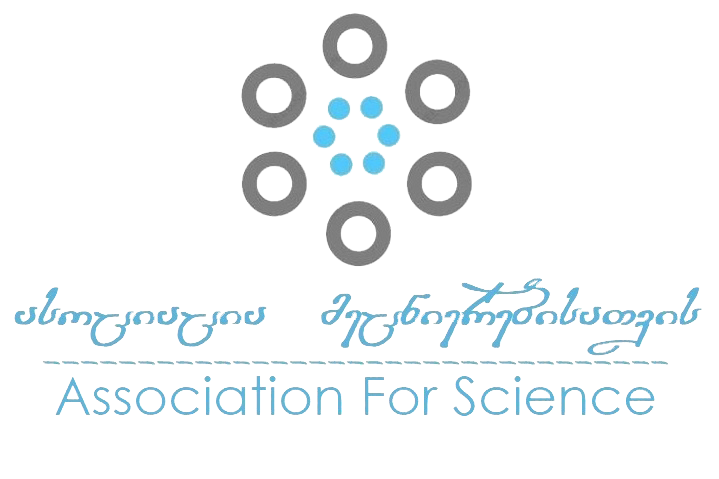Dystopian novel „A Clockwork Orange“ by Anthony Burgess
DOI:
https://doi.org/10.52340/sou.2023.21.20Keywords:
Anthony Burgess, „A Clockwork Orange“, dystopian novel, authoritarian regime, classical music, an issue of good and evilAbstract
Anthony Burgess is 20th century British writer with an outstanding style and vision. According to the plot a large number of the writer's novels are about violence, confrontation between personality and society. The writer has entered the history of literature as the author of psychological and intellectual novels. Burgess' writing style has immediately attracted the attention of a wide reading public. European and American critics had a different attitude towards „A Clockwork Orange“.
Unhealthy environment, war, social distress, doubting the existence of God, acceptance of false values cause a person's longing for „morbid ugliness“. Where is the source of Alex's spiritual trauma? Did the „destruction of the present“ cause Alex's spiritual „metastases“? Perhaps, foreseeing the future is the cause of human misery and the source of existential fears? Loss of trust in society is followed by personal alienation, indifference, irresponsibility, violence, and mental madness.
We think that Alex is a victim of the „Age of Destruction“. The rebellious teenager gradually returns to society and he begins to understand good and evil. Classical music - Beethoven's „Best Ninth Symphony“ helps him in this. Alex is a victim of an authoritarian regime. The heartless government took away his most precious freedom, his love for music and art.
The vey article is followed by discursive thinking, analytical, connotative searches, critical analysis, meditations, multi-dimensionality of thought, and confrontation method.
References
არისტოტელე (1979) არისტოტელე, პოეტიკა, წინასიტყვაობა, თარგმანი და კომენტარები ს. დანელიასი, თბილისი;
ალიგიერი (2012) დ. ალიგიერი, ღვთაებრივი კომედია, თარგმანი და განმარტებანი კ. გამსახურდიასი, თბილისი;
ბერჯესი (2014) ე. ბერჯესი, მექანიკური ფორთოხალი, თარგმანი გ. ჭუმბურიძის, თბილისი;
ბოჭორიშვილი (1991) ა. ბოჭორიშვილი, თხზულებები ხუთ ტომად, ტომი I, თბილისი;
ბოჭორიშვილი (1980) ა. ბოჭორიშვილი, რას ამბობენ ფილოსოფოსები ადამიანის არსის შესახებ, თბილისი;
იუნგი (2014): კ. გ. იუნგი, თანამედროვე ადამიანის სულიერი პრობლემა, კარენ ჰორნი, კულტურა და ნევროზი, ერიხ ფრომი, ვართ კი ნორმალურები? თარგმანი ნ. კუჭუხიძის, ქუთაისი;
კაპანელი (1937) კ. კაპანელი, მოცარტი, ბეთჰოვენი, ვაგნერი, სახელგამი, თბილისი;
ნიცშე (1989) ფ. ნიცშე, ესე იტყოდა ზარატუსტრა, თარგმანი ე. ტატიშვილის, „ფილოსოფიური ბიბლიოთეკა“, თბილისი;
პლატონი (2003) პლატონი, სახელმწიფო, თარგმანი ბ. ბრეგვაძის, თბილისი;
ლომბროზო (1908) ჩ. ლომბროზო, როგორ უყურებს ბოროტ-მოქმედებას ლომბროზო და მისი სკოლა, გაზეთი „ამირანი“, N101, 103, თბილისი;
უსლ (2005) უცხო სიტყვათა ლექსიკონი, შემდგენელი ს. თეზელიშვილი, თბილისი;
ფროიდი (2012) ზ. ფროიდი, კულტურით უკმაყოფილება, თარგმანი ა. პეტრიაშვილისა და გ. ხოშტარიასი, ილიას სახელმწიფო უნივერსიტეტი, თბილისი;
შტაინერი (2014) რ. შტაინერი, ბოროტების წარმოშობა, „შუა საუკუნეების მისტერიათა ცენტრები“, თარგმანი ა. კვარაცხელიასი, თბილისი;
შოპენჰაუერი (2008) ა. შოპენჰაუერი, მუსიკის შესახებ, მშვენიერების მეტაფიზიკა, თარგმანი ვ. ფეიქრიშვილისა, თბილისი;
საფრანსკი (2015) რ. საფრანსკი, ბოროტება ანუ თავისუფლების დრამა, თარგმანი ანა კორძაია-სამადაშვილისა, ილიას სახელმწიფო უნივერსიტეტი, თბილისი;
ჰოიზინგა (1985) ი. ჰოიზინგა, თამაშის, როგორც კულტურის მოვლენის, არსი და მნიშვნელობა, თარგმანი გ. ნოდიასი, ჟურნალი „საუნჯე“, N6. თბილისი;
Roger (2002): Lewis Roger, Anthony Burgess, Faber and Faber, New York;
Phillips (1999): Paul Phillips, The Music of Anthony Burgess, London;
Coale (1981): Samuel Coale, Anthony Burgess, New York.



